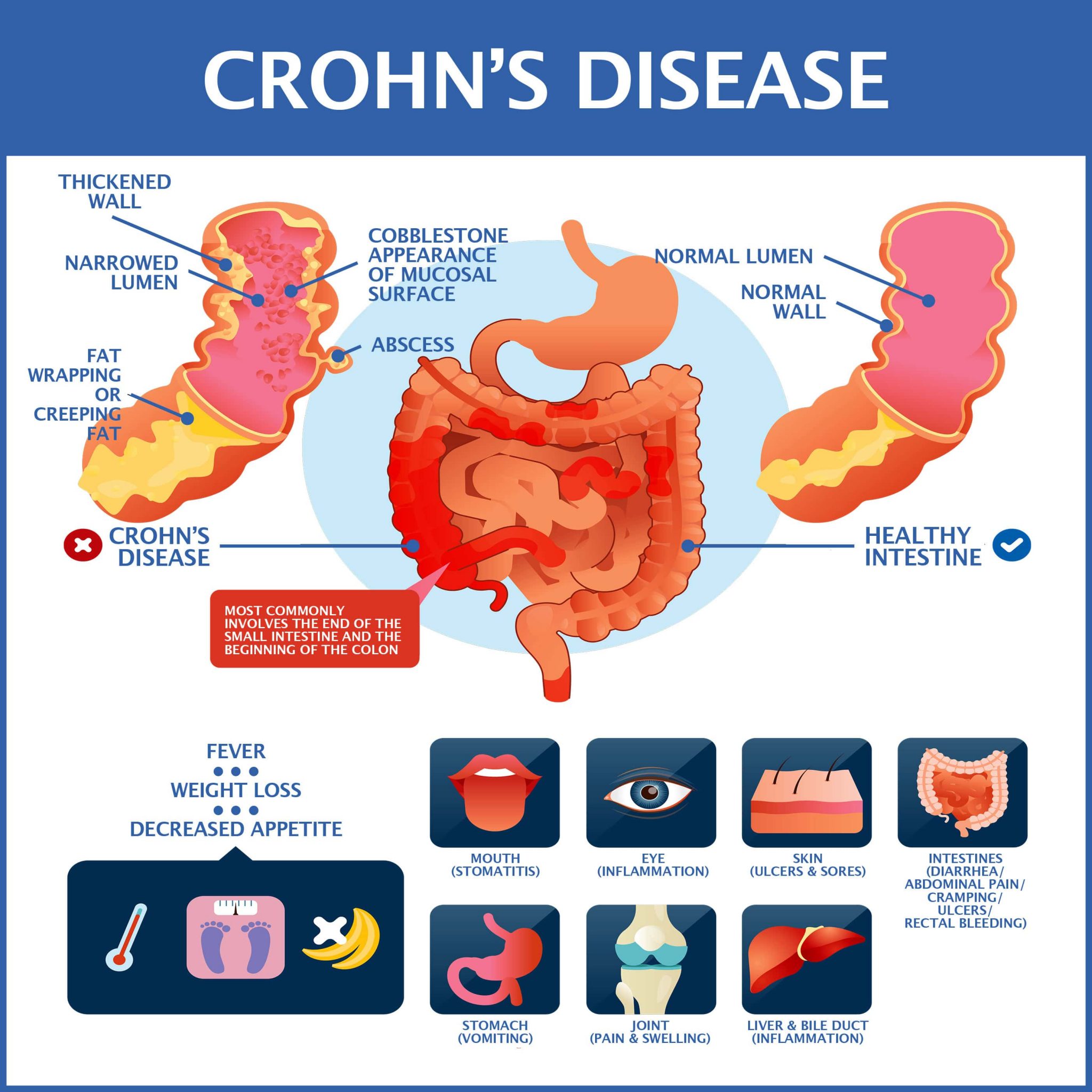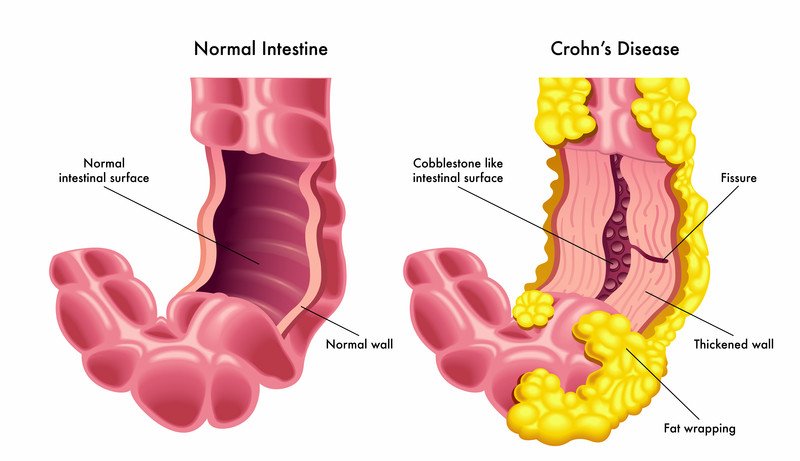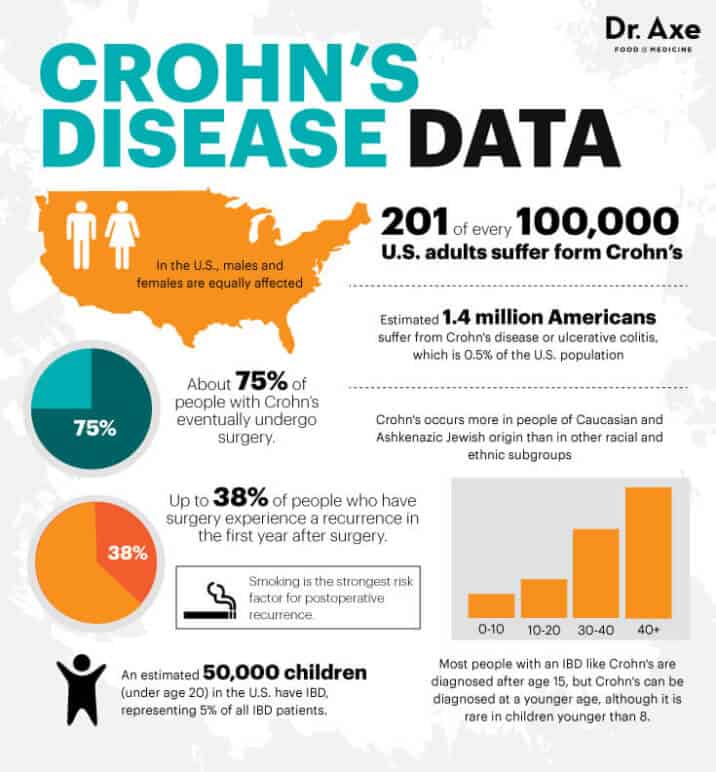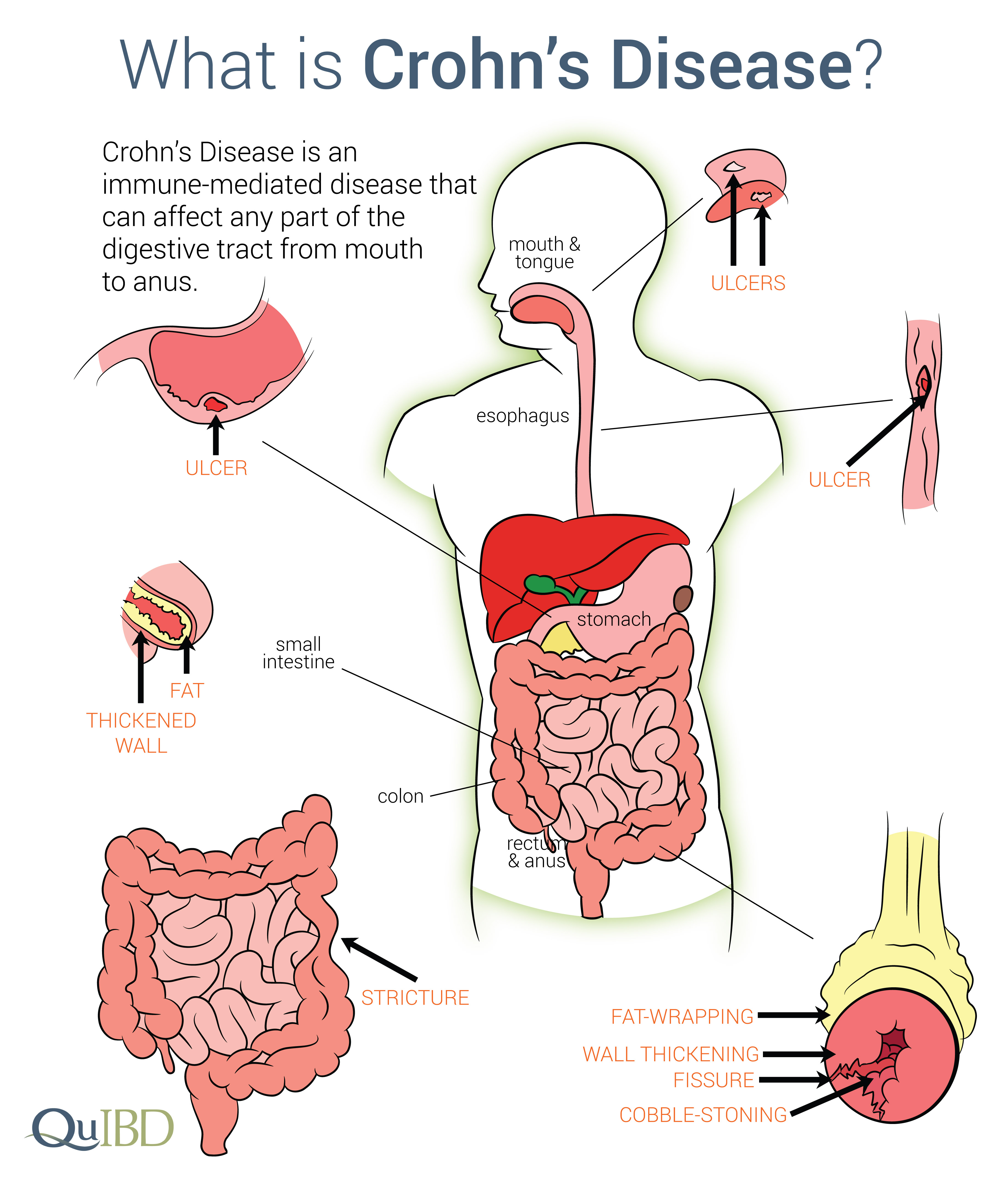Crohn's disease is a type of inflammatory bowel disease (IBD) that causes inflammation in the digestive tract, leading to a range of symptoms such as abdominal pain, diarrhea, weight loss, and fatigue. While the exact cause of Crohn's disease is unknown, it is believed to be a combination of genetic and environmental factors. One of the key characteristics of Crohn's disease is its prevalence among certain age and gender groups. According to a recent study, women are more likely to be diagnosed with Crohn's disease than men, and the incidence of the disease is highest among people between the ages of 20 and 29. Additionally, patients who smoke or who have a family history of IBD are at a higher risk for developing Crohn's disease. Despite ongoing research into the causes and treatment of Crohn's disease, there is currently no cure for the condition. Treatment options focus on managing symptoms and reducing inflammation in the digestive tract. Medications such as immunosuppressants, antibiotics, and biologic therapies can be effective in controlling inflammation and reducing the frequency and severity of symptoms. In addition to medication, lifestyle modifications such as diet changes and stress management can also be helpful for managing Crohn's disease. Foods that are high in fiber, such as fruits and vegetables, can be difficult for some people with Crohn's disease to digest and may aggravate symptoms. Similarly, foods that are high in fat and spicy foods can also trigger symptoms. It is important for patients to work with their healthcare provider to develop a personalized diet plan that takes their individual needs and preferences into account. Stress can also play a role in triggering symptoms of Crohn's disease. While there is no direct causal relationship between stress and the disease, stress can worsen symptoms and make it more difficult for patients to manage their condition. Relaxation techniques such as deep breathing, meditation, and yoga can be effective in reducing stress and improving overall mood and well-being. In conclusion, Crohn's disease is a chronic condition that affects the digestive system and can lead to a range of unpleasant symptoms. While there is currently no cure for the disease, treatment options such as medication, lifestyle modifications, and stress management can be effective in managing symptoms and improving quality of life for patients. By working closely with their healthcare provider and following a personalized treatment plan, people with Crohn's disease can live full and active lives.
If you are looking for Impact of Crohn's Disease On Your Menstrual Cycle you've visit to the right web. We have 7 Images about Impact of Crohn's Disease On Your Menstrual Cycle like Crohn's Disease Symptoms, Facts and Risk Factors - Dr. Axe, Crohn's Disease IBD Symptoms Advances Impact Causes and also Impact of Crohn's Disease On Your Menstrual Cycle. Here it is:
Impact Of Crohn's Disease On Your Menstrual Cycle
 www.epainassist.com
www.epainassist.com menstrual disease cycle impact crohn advertisement
Been Diagnosed With Crohn’s Disease? | Gastroenterology Of Greater Orlando
 greaterorlandogi.com
greaterorlandogi.com crohn crohns symptoms
History Of Crohn's Disease
 www.news-medical.net
www.news-medical.net disease history medical crohn crohns symptoms condition
Crohn's Disease Guide: Causes, Symptoms And Treatment Options
 www.drugs.com
www.drugs.com disease crohn crohns symptoms intestine illustration vector medical diagram guide homeopathic medicines doctor dreamstime section illustrations vectors causes
Crohn's Disease Symptoms, Facts And Risk Factors - Dr. Axe
 draxe.com
draxe.com crohn crohns draxe
Characteristics Related To Gender And Age At Diagnosis For All Crohn's
 www.researchgate.net
www.researchgate.net characteristics crohn
Crohn's Disease IBD Symptoms Advances Impact Causes
 www.quibd.com
www.quibd.com disease crohn crohns symptoms causes ibd diseases affected ileum organs intestine common impact colon health
Disease crohn crohns symptoms causes ibd diseases affected ileum organs intestine common impact colon health. Crohn's disease guide: causes, symptoms and treatment options. Disease history medical crohn crohns symptoms condition
 www.epainassist.com
www.epainassist.com  greaterorlandogi.com
greaterorlandogi.com  www.drugs.com
www.drugs.com  draxe.com
draxe.com  www.researchgate.net
www.researchgate.net  www.quibd.com
www.quibd.com
0 Response to "What Gender Is Most Affected By Crohn's Disease Crohn Crohns Draxe"
Post a Comment